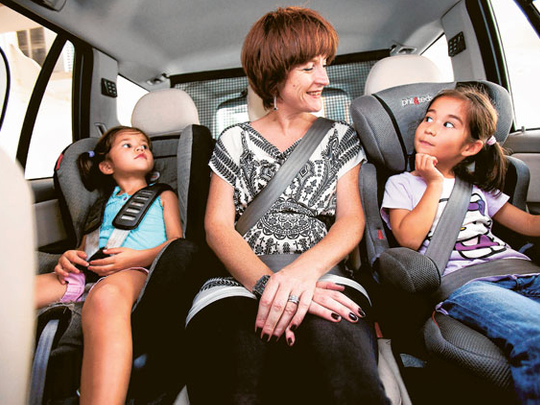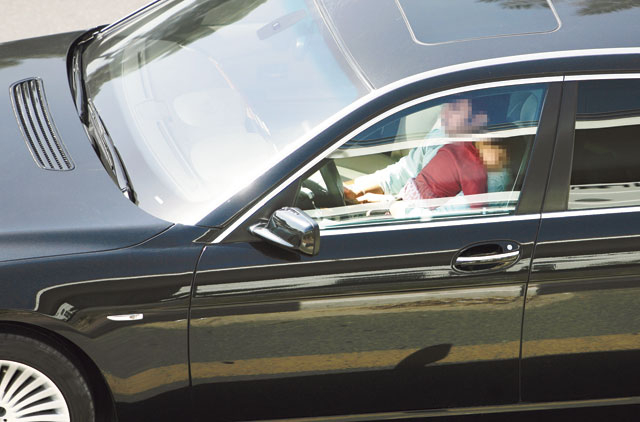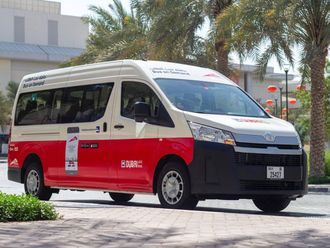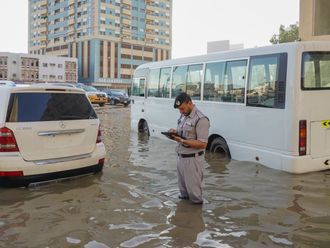
Dubai: Drivers who fail to ensure that any child in their car is buckled up in an appropriate child seat will be facing the charge of endangering a person's life, Major General Mohammad Saif Al Zafein, Head of Dubai Police's Traffic Department, said Tuesday.
The Traffic Police Chief's statement puts an end to speculations on whether the instructions issued by the Ministry of Interior earlier this week meant that child seats for children below six years old are obligatory by the law.
The ministry had issued instructions regarding the use of child seats in the cars early this week. He said that using child seat in the cars is obligatory by law now, however, he did not elaborate how much fine will be imposed.
"We will advise people when they need advice and issue violations for those who endanger a child's life," Maj Gen Al Zafein told Gulf News.
He said the child's size and weight, rather than their age, determines whether or not they need a child seat and what type of seat should be used.
"Some children are small in size and the regular seatbelt will not offer much protection when it is too loose or falls in the wrong place on the child's chest, as it should secure the passenger's chest right under the neck," Maj Gen Al Zafein said.
"In this case, even if the child is above six, they would still need a car seat or booster seat to ensure they are well secured, he said, adding that it was the driver's responsibility to ensure the law is implemented.
Even if the child is sitting on a passenger's lap, the driver is the one who will be held responsible for this violation," he added.
Speaking at the closing ceremony of the Safe Distance Campaign, which took place at the University of Jazeera on Tuesday, Maj Gen Al Zafein expressed his satisfaction with the campaign and its outcomes.
Safe distance campaign
"This is the first time a university takes initiative and partners with the Traffic Department in a campaign, which we appreciate and encourage," he said.
Some 100 volunteers from the university took part in the campaign by distributing pamphlets and holding traffic exhibitions in malls and schools.
"The results of this campaign were a drop in the number of accidents caused by failure to leave a safe distance and the deaths and injuries resulting from them," Maj Gen Al Zafein said.
Since the campaign started on April 1, the number of accidents caused by not leaving a safe distance was 95 resulting in three deaths and 54 injuries, out of which four were severe, compared to 109 accidents, four deaths and 91 injuries, out of which six were severe in the same three-month period last year.
What the law says
- Children under nine months, or those weighing under 10kg, must be seated in child seats facing the rear of the car.
- Children between nine months and four years, weighing 9kg to 18kg, should be seated in car seats facing forward.
- Seat boosters can be used for children between four and six years, weighing 15kg to 25kg.
- Support cushions can be used for children aged six to 11 years, who weigh 22kg to 36kg.
- Child seats should be placed on the back seat, secured with seatbelts.













